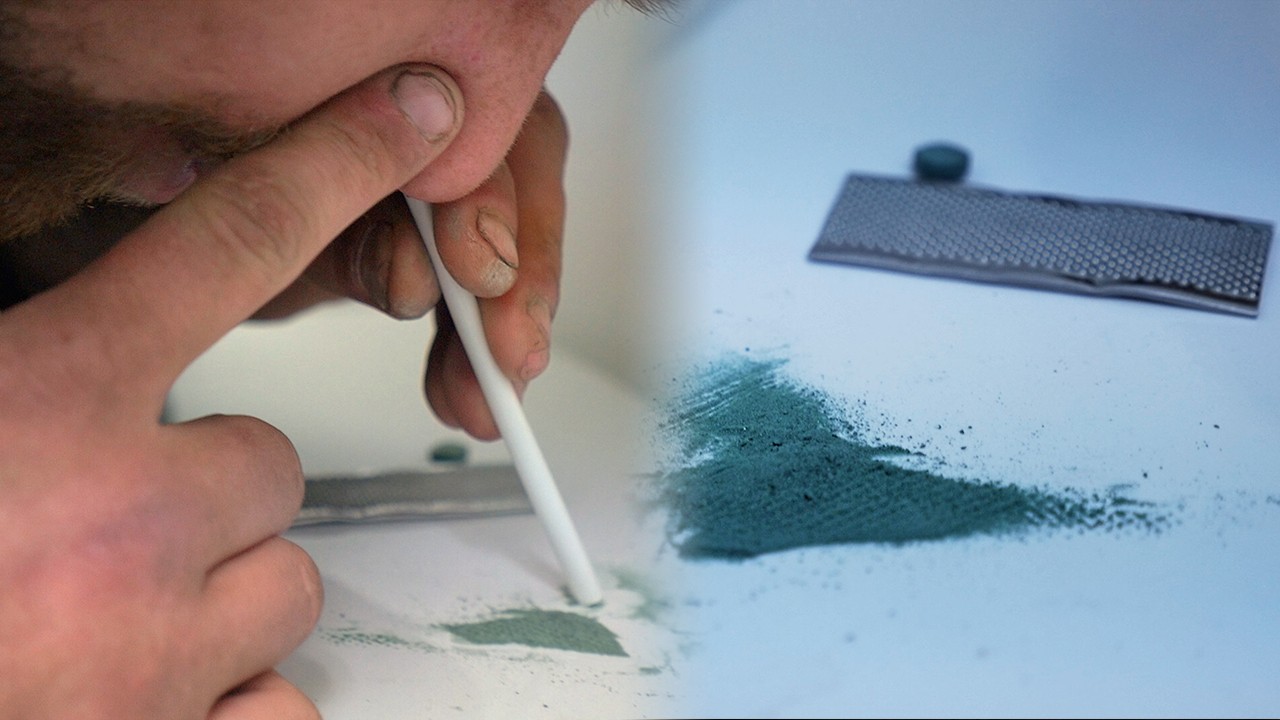Photo via Flickr user frankieleon
The first time I saw fentanyl was when one of my ex-boyfriends from high school texted me a photo of him holding a handful of pills. At the time, I had no idea what it was, but he told me it was even stronger than OxyContin and that he was using it to deal with depression. Now, it seems I can't go a week without writing about fentanyl and the devastation it has caused in Canada.Previous to that, for most of my life until I was 14, I lived and went to school in Tioga County, Pennsylvania. I would have never imagined that the backwoods area I grew up in would play host to the opioid crisis. Some of my family and friends lay blame on the fracking industry for bringing in a sizeable amount of wealth or for attracting outsiders to the area for jobs. I don't know for sure why Pennsylvania was hit so hard by the opioid crisis, but it has been. Overdoses now kill more Americans than guns or car crashes annually. And in 2014 alone, 2,732 people died in Pennsylvania due to drug ODs—an increase of nearly 13 percent from the year before. That makes Pennsylvania one of the states most affected in the US by the opioid crisis. What is even more disturbing for me is that I knew some of the people who became statistics.I was the product of school assemblies and in-class lectures using the anti-drug propaganda program D.A.R.E. As a teenager, I didn't necessarily understand the difference in the type of harm that could be caused by various drugs. When I got older, I only found out through browsing Erowid and word of mouth. Some of my best friends from middle school ended up hooked on opioids when they entered adulthood. They struggled but were able to get out of it; one, unthinkably, had to do it without medicine like suboxone or methadone. As I entered my late teens, I was prescribed opioids by American doctors for things like dental surgery or bad throat infections. I always had some left over.It seems that for a few years now, usually once every couple months when I log onto Facebook, I see personal statuses mourning the death of someone I went to school with. And when I ask around about how they died, more often than not, it was from an overdose. Sometimes, the last time I saw them, they hadn't even been doing drugs. I remember one of the first times was when I heard about the OD death of a boy I had kissed in middle school. It's people I used to have art class with, people I used to sit with at lunch, people I used to smoke weed with after school. I grew up in a town of under 1,000 people; everyone knew each other. I hate feeling like there is nothing I can do. I reach out to others from my past who knew those who died—sometimes I find out that they're on opioids too or got off them recently. It's so common that it has touched nearly everyone from back home in one way or another. Knowing this has made me break down in tears before. I can keep writing, but it feels like what I am doing has no effect whatsoever on the situation there. And because this problem is so widespread, I'm now well-acquainted with its effects where I currently live, in Canada.When I was 19, I started visiting Toronto to party on the weekends and eventually moved there. In the summer of 2011, one of my friends and I snorted OxyContin off a counter in a washroom of an after-hours venue in Toronto. It was the first time I tried that drug, and I was treating it like any of the party drugs I was experimenting with at the time. It wasn't long before I started nodding off, and my boyfriend helped us walk out onto the rooftop to get fresh air. My friend and I had to shake each other to stay awake. I think sometimes about how lucky I am that I did not fall into opioid addiction. I have gotten to a dark place with drug use before in my life, but I just wasn't keen on downers. Some people I knew did fall in, though. I'll admit I was pretty freaked out the first time a friend offered me heroin at a party, and even more so when I found out some friends had gotten addicted to it. Like many in our society tend to do, my first inclination was to judge them. Now that I am so familiarized with the strong stigma associated with drug use—and sometimes aggressively start arguments over it—I am embarrassed I ever felt that way. I have distanced myself at times, keeping people at arm's length. I've apologized to some for not being around. I'm there for those who want support; but other times, some people don't want anyone to interfere. That's OK, because it's their lives.When fentanyl started killing more and more people, reporting on the opioid crisis was something I was naturally drawn to because of my fascination with drugs. But other than that, it was affecting those I knew. Reporting on it changed my perspective, and I strive every day to do work that does people like those who've been in my life justice.READ MORE: It's Never Been Less Safe to Try Out DrugsI am only able to connect with some of the sources I've had over the course of my last year reporting—those who have used drugs—because of my personal experience with drugs. Most are aware of the perspective I have. I know some of them have trusted me because of that. I care so much about getting it right because I genuinely care about them as people, not just as stories. I keep in touch with several, and some of them even update me on their recovery process. When those sources led me to work on a documentary about fentanyl, Dopesick, I sent links to people in my life with firsthand experience before anyone else. I care more what they think about my work than I do about what most people think.There are times when I hear about relapses or overdose deaths of people I know or those from my past, and I have to go into work the next day and write about whatever development in the opioid crisis has happened in Canada that day. Those developments seem to happen every day now. I experience frustration knowing that not everyone reporting on the opioid crisis has seen the shit that I have. I have seen needles, I have seen people struggling with recovery, I worry about what will happen to the people I know who still use opioids. I worry about myself and my own drug use now that fentanyl has found its way into substances I use sometimes. I worry about everyone I know who uses drugs. I know it's not considered acceptable by standards I was taught in journalism school to have the level of empathy I do with my sources, but the public health crisis we are currently living through is an extraordinary situation. It has affected me, and I will not pretend that it hasn't.Follow Allison Tierney on Twitter.
I think sometimes about how lucky I am that I did not fall into opioid addiction. I have gotten to a dark place with drug use before in my life, but I just wasn't keen on downers. Some people I knew did fall in, though. I'll admit I was pretty freaked out the first time a friend offered me heroin at a party, and even more so when I found out some friends had gotten addicted to it. Like many in our society tend to do, my first inclination was to judge them. Now that I am so familiarized with the strong stigma associated with drug use—and sometimes aggressively start arguments over it—I am embarrassed I ever felt that way. I have distanced myself at times, keeping people at arm's length. I've apologized to some for not being around. I'm there for those who want support; but other times, some people don't want anyone to interfere. That's OK, because it's their lives.When fentanyl started killing more and more people, reporting on the opioid crisis was something I was naturally drawn to because of my fascination with drugs. But other than that, it was affecting those I knew. Reporting on it changed my perspective, and I strive every day to do work that does people like those who've been in my life justice.READ MORE: It's Never Been Less Safe to Try Out DrugsI am only able to connect with some of the sources I've had over the course of my last year reporting—those who have used drugs—because of my personal experience with drugs. Most are aware of the perspective I have. I know some of them have trusted me because of that. I care so much about getting it right because I genuinely care about them as people, not just as stories. I keep in touch with several, and some of them even update me on their recovery process. When those sources led me to work on a documentary about fentanyl, Dopesick, I sent links to people in my life with firsthand experience before anyone else. I care more what they think about my work than I do about what most people think.There are times when I hear about relapses or overdose deaths of people I know or those from my past, and I have to go into work the next day and write about whatever development in the opioid crisis has happened in Canada that day. Those developments seem to happen every day now. I experience frustration knowing that not everyone reporting on the opioid crisis has seen the shit that I have. I have seen needles, I have seen people struggling with recovery, I worry about what will happen to the people I know who still use opioids. I worry about myself and my own drug use now that fentanyl has found its way into substances I use sometimes. I worry about everyone I know who uses drugs. I know it's not considered acceptable by standards I was taught in journalism school to have the level of empathy I do with my sources, but the public health crisis we are currently living through is an extraordinary situation. It has affected me, and I will not pretend that it hasn't.Follow Allison Tierney on Twitter.
Advertisement
Advertisement

